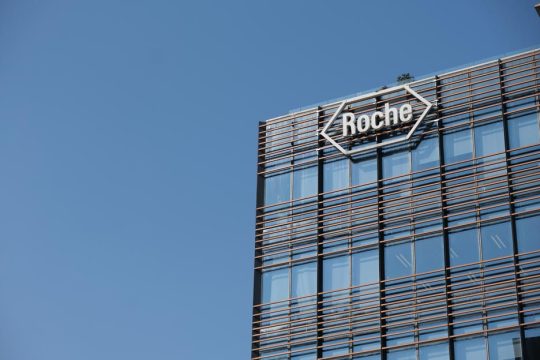Advertisment
ASH 2015: Checkpoint blockade vision of the future. Professor Stephen Ansell, Mayo Clinic, Rochester, MN, USA discusses the extended follow-up phase 1 nivolumab study in R/R classic HL. Click video image to view.

by Thomas R. Collins: Studies on PD-1 blockade in classical Hodgkin lymphoma are still only entering Phase 2, but the early results and a history of success in solid tumours has researchers touting the checkpoint-blockade strategy as a future cornerstone of treatment in the disease, and potentially in other haematologic disorders with similar targets.
PD-1 blockers work by intervening in a pathway some tumor cells use to evade the body’s immune system. Their success seen so far could even be cause to hold off on allogeneic transplants in classical Hodgkin’s lymphoma patients who were previously relapsed or refractory upon receiving the treatment, said Dr Phillippe Armand, MD, PhD, Associate Professor of Medicine at Harvard Medical School, and a physician at the Dana-Farber Cancer Institute, who is heavily involved in clinical trials of these therapies.
“Our impression is that patients who go to allo-transplant after PD-1 blockade with either antibody, may experience higher toxicity — this is based on small numbers but we are trying to collate an international experience on this,” he said in a session here at the 57th Annual Meeting of the American Society of Haematology. “On the other hand, we’re seeing the response duration (on PD-1 therapy) lengthen with ongoing follow-up. So it makes a transplant decision complicated. But at least, I think, within the context of the results that we have now, and with a lot of caution in making this statement, I think it’s reasonable to consider holding off on allogeneic stem cell transplantation in patients who are responding well to PD-1 blockade therapy.”
Across several sessions here, investigators said they’re particularly encouraged by the staying power of responses in HL. That durability is “something that has come to characterize checkpoint blockade and made this a particularly exciting field,” Dr. Armand said.
Findings presented at ASH continue to show that nivolumab — a monoclonal antibody targeting the programmed death-1 pathway — continues to produce good responses in Hodgkin lymphoma patients. The latest data, after 101 weeks of therapy in 23 patients in a trial that also includes non-Hodgkin patients, show that 87% have had at least 6-months of progression-free survival. The median duration of response hadn’t been reached yet.1
One of the patients who responded and was removed from treatment, was given nivolumab again after progression, and again responded, said Professor Steve Ansell, MD, PhD, Professor of Medicine at Mayo Clinic, who presented those findings.1
A different study shows that pembrolizumab, another PD-1 blocker, has brought about complete remission in 16% of patients who are particularly difficult to treat, having failed brentuximab vedotin and either autologous stem cell transplant failure or transplant-ineligibility due to lack of treatment response. Forty-eight percent of those patients have achieved partial remission. There are 31 patients being studied in the trial, with a median follow-up for survivors of 18 months. 2
Those who had failed transplant have performed better than those who were transplant-ineligible.
Another question with this line of treatment is how to predict who will respond — since in almost all classic HL patients, PDL-1 ligand is highly expressed, unlike the situation in solid tumors, Dr. Ansell said.
“It will be very important for us,” he said, “to be able to identify particularly non-responders or potentially patients destined to relapse.”
There is also a lingering question of what constitutes progression on the therapy, he said, since some patients who have technically progressed based on PET scanning also still seem to be benefitting from the drug.
“There have been a number of patients where there has been a significant benefit and then a PET-scan-positive lesion (is found) somewhere else,” Dr. Ansell said.
Dr. Armand said that the field, with so many encouraging findings, so many ongoing trials, so many potential checkpoints to examine, and so many potential combinations, might be “too big to fail.” But it could also be too big to succeed, he said. Since the best therapies that act the fastest will probably span different corporations and academic centers, collaboration is going to be essential for maximum patient benefit, he said.
“I think it’s clear, especially in this field,” he said, “that we need to leverage the immense scientific enterprise that is underway.”
References
1. Ansell S, Armand P, Timmerman J, et al. Nivolumab in Patients (Pts) with Relapsed or Refractory Classical Hodgkin Lymphoma (R/R cHL): Clinical Outcomes from Extended Follow-up of a Phase 1 Study (CA209-039). Presented at the 57th Annual Meeting of the American Society of Hematology. 2015 Dec 5-8. Orlando FL. Abstract 583.
2. Armand, P, Shipp M, Ribrag V, et al. Blockade with Pembrolizumab in Patients with Classical Hodgkin Lymphoma after Brentuximab Vedotin Failure: Safety, Efficacy, and Biomarker Assessment. Presented at the 57th Annual Meeting of the American Society of Hematology. 2015 Dec 5-8. Orlando FL. Abstract 584.





